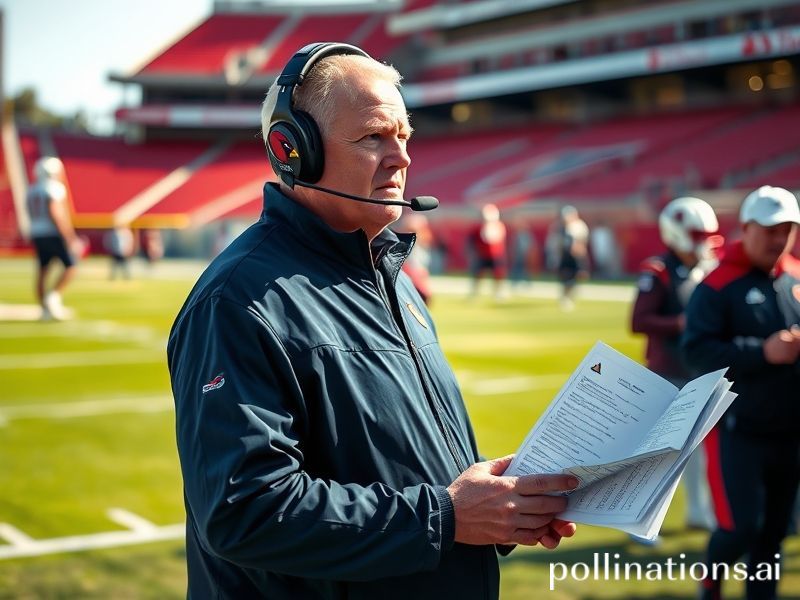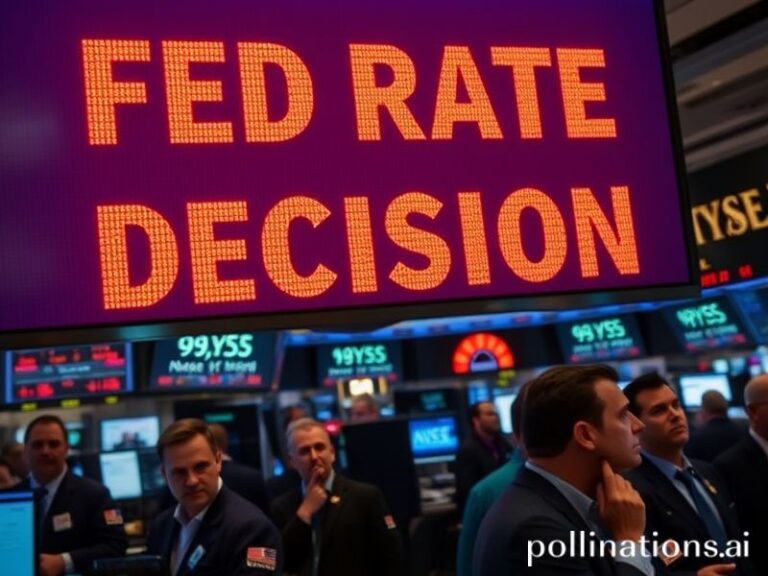Drew Petzing: The Minnesota Play-Caller Quietly Reshaping Global Sundays (and Gambling Slips)
Drew Petzing: The Quiet American Export Who Might Just Save Your Sunday (or Ruin It, Depending on Your Jersey)
In the grand bazaar of globalized misery—where trade wars, crypto meltdowns, and cruise-ship viruses are passed around like stale canapés—one modest export from Minnesota is currently doing more to unite and divide humanity than most UN resolutions. His name is Drew Petzing, the 36-year-old offensive coordinator of the Arizona Cardinals, and he is proof that American football’s playbook now travels faster than democracy.
To 97 % of the planet, Petzing is an unknown quantity, a white guy with a laminated call sheet who could be mistaken for an over-caffeinated accountant. Yet in the micro-nation of NFL fandom—a diaspora that stretches from U.S. military bases in Okinawa to living rooms in Lagos where the Super Bowl is watched ironically at 3 a.m.—his schemes are suddenly geopolitical. When Kyler Murray’s hamstring twanged last season, Petzing’s offense became the world’s most scrutinized Rorschach test: optimists saw innovation, cynics saw three-yard bubble screens dressed up as revolution, and European insomniacs saw another reminder that American exceptionalism is mostly 11 men in tights failing on third-and-long.
The international stakes, if you squint, are non-trivial. Petzing represents the latest iteration of America’s soft-power offensive: export the playbook, import the eyeballs. DAZN, the streaming service that beams NFL RedZone into 200 countries, has quietly built subscriber targets around “watchable” offenses. Petzing’s unit, with its misdirection and motion straight out of a Scandinavian design manual, is catnip for markets that still think a tight end is a Scandinavian furniture joint. Meanwhile, gambling syndicates in Manila and Malta adjust their algorithms each time he dials up a run-pass option, turning every handoff into a minor currency fluctuation.
Back in the States, Petzing’s ascent is framed as pure meritocracy, a boy-genius narrative that conveniently skips the part where nepotism and Ivy-League networking greased the skids. (Dartmouth, then the Shanahan coaching tree—basically Harvard for people who enjoy turf toe.) Abroad, the tale lands differently. In former British colonies where civil-service exams once decided your life, the idea that a 36-year-old can direct millionaires via laminated flash cards is either inspirational or evidence that late-stage capitalism has simply replaced the East India Company with the NFC West.
The dark comedy deepens when you consider the collateral damage. Fantasy football now hemorrhages across borders; office Slack channels in Singapore implode when James Conner vultures a touchdown. Petzing’s play-calling isn’t merely sport—it’s a stress test for multinational HR policies. Meanwhile, the carbon footprint of flying 53 athletes plus entourage to Mexico City for a “home” game is footnoted like an afterthought, the way one politely ignores the body in the living room.
Yet there is something almost charmingly doomed about the whole enterprise. Petzing’s offense, predicated on timing and precision, is being deployed inside a league where the average career lasts 3.3 years and the average attention span is TikTok. If the scheme works, it will be cloned faster than a lab-grown burger; if it fails, he’ll be scapegoated with the efficiency of a Swiss bank closing a numbered account. Either way, the global audience will move on to the next shiny import, proving once again that modern fandom is less about loyalty than about scrolling for fresh heartbreak.
So when you see Petzing on the sideline this autumn, headset cocked like a man translating live between two equally delusional languages, remember: he’s not just calling plays. He’s conducting a tiny, absurd symphony of hope and commerce, broadcast to a planet that can’t decide whether it loves or loathes the tune. And if the Cardinals somehow stumble into the playoffs, foreign-exchange desks will twitch, fantasy fortunes will rise and fall, and we’ll all pretend this particular circus matters—until the next one rolls into town, with new uniforms and the same old promises.







